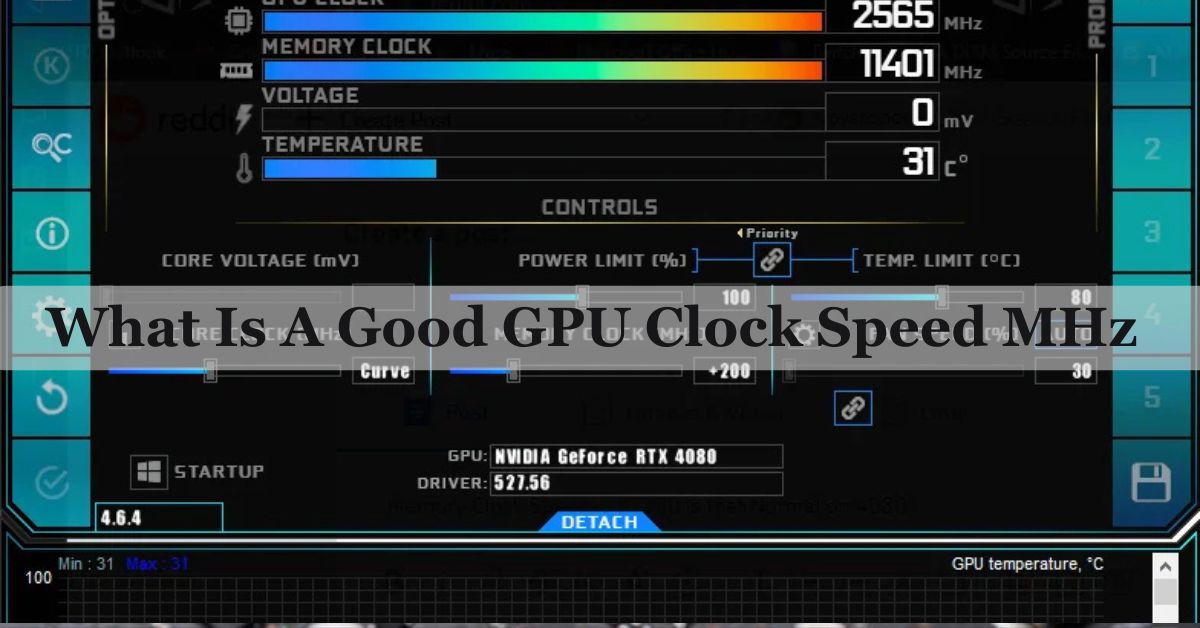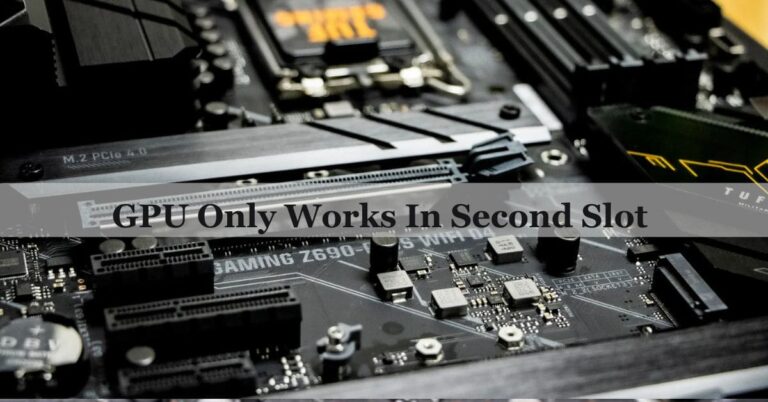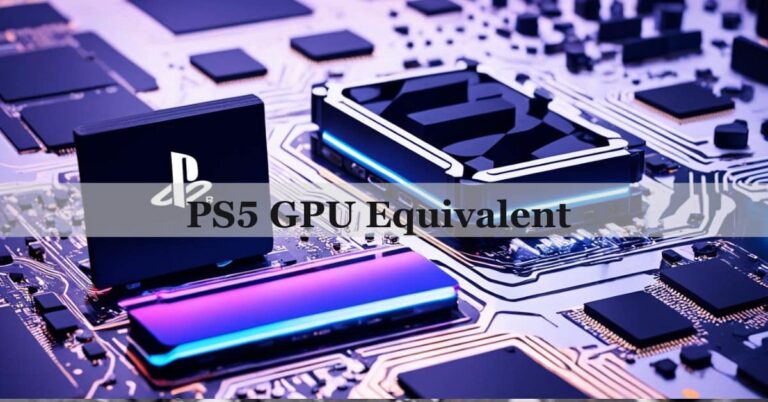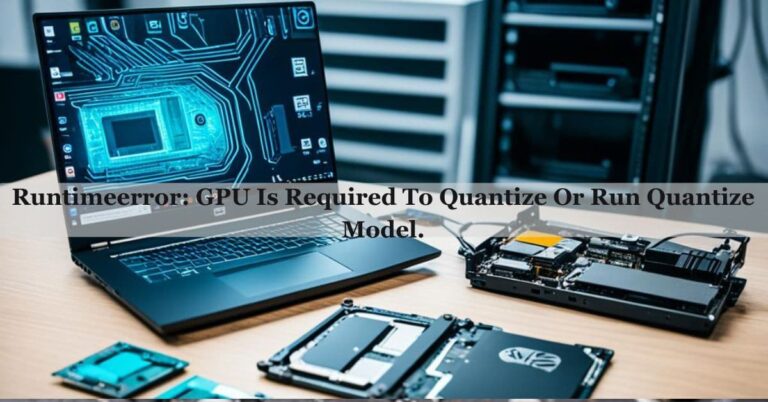What Is A Good GPU Clock Speed MHz – Boost Your GPU Efficiency!
“I upgraded my GPU to one with a clock speed of 1800 MHz, and gaming felt much smoother. It handled high settings effortlessly without lag. Proper cooling kept it running perfectly.”
A good GPU clock speed is usually between 1500-2000 MHz. It provides smooth gaming and good performance for most tasks. Choose a speed that matches your GPU and ensures proper cooling.
Stay tuned as we discuss “what is a good GPU clock speed MHz” to help you understand and improve your GPU’s performance.
Introduction To GPU Clock Speed
What Does GPU Clock Speed Mean?
GPU clock speed measures how fast a graphics card’s processor (GPU) runs, usually in megahertz (MHz). It shows how many tasks the GPU can handle each second. Higher clock speeds generally mean better performance, allowing smoother gameplay, faster rendering, and improved visuals in games and applications.
Importance of GPU Clock Speed
GPU clock speed is important because it affects how fast your graphics card processes data. A higher clock speed ensures better game performance, video editing, and other graphic-intensive tasks. It helps deliver smoother visuals, faster load times, and improved system efficiency.
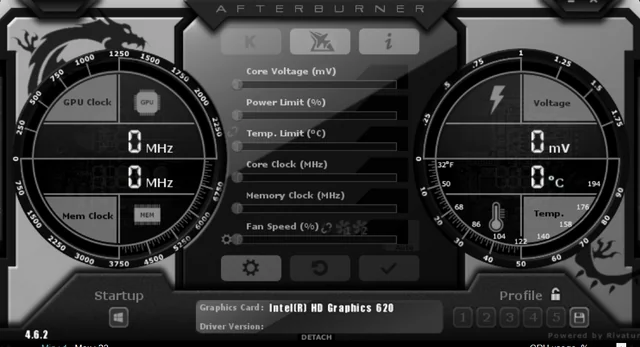
What Is A Good GPU Clock Speed In MHz?
A good GPU clock speed usually ranges between 1500 MHz and 2000 MHz. This range is ideal for smooth gaming and handling tasks like video editing. However, the exact speed depends on your GPU model and your tasks’ demands. Faster speeds can improve performance but may require good cooling to prevent overheating.
Core Clock Vs. Memory Clock
The core clock controls how fast the GPU processes data, while the memory clock manages how quickly data is transferred from memory. Both are important for performance. A higher core clock improves processing speed, while a higher memory clock speeds up data handling. Together, they ensure smoother gameplay and better graphics performance.
Does GPU Clock Speed Matter For Gaming?
Yes, GPU clock speed matters for gaming. Higher clock speeds help the GPU process graphics faster, leading to smoother gameplay and better frame rates. However, other factors like GPU model, memory, and system cooling also impact gaming performance. A balanced setup is important for the best experience.
Good Clock Speeds For Different Tasks
For gaming, 1400-1700 MHz is generally good. For professional tasks like video editing or 3D rendering, a clock speed closer to 1800-2000 MHz is often better. These speeds allow the GPU to handle tasks efficiently, but proper cooling is essential to maintain performance without overheating.
How To Check Your GPU Clock Speed
1. Use Task Manager
Open Task Manager by pressing Ctrl + Shift + Esc, go to the Performance tab, and click on your GPU. Here, you can see the current GPU clock speed in real time. It’s displayed under Graphics Processing.
2. Check with GPU-Z Tool
Download GPU-Z, a free software that shows detailed GPU information. Open the app, and under the Sensors tab, you’ll find your GPU clock speed listed clearly.
3. Monitor with MSI Afterburner
Install MSI Afterburner, a popular tool for GPU monitoring. Launch it, and you’ll see your GPU clock speed displayed on the main screen. It also allows adjustments if needed.
4. Check Through Manufacturer Software
Most GPU brands like NVIDIA or AMD have official software like GeForce Experience or Radeon Software. Open these apps, and you can check your GPU clock speed in the performance section.
5. Use BIOS Settings
Restart your PC and enter the BIOS by pressing a key like Del or F2 during boot. In the advanced settings, look for GPU details to find your clock speed. This method is less common but reliable.
Can You Adjust the GPU Clock Speed?
Yes, you can adjust GPU clock speed using tools like MSI Afterburner or NVIDIA Control Panel. This process is called overclocking or underclocking. It helps improve performance or reduce power usage. However, you should make changes gradually and monitor temperatures to avoid overheating or damaging your GPU.
How Many MHz Make A Difference?
A difference of 100 to 200 MHz in GPU clock speed can improve performance in games and tasks. Higher MHz means faster data processing, but the impact depends on the GPU model and cooling. Make sure your system can handle higher speeds to avoid overheating.
When Does Memory Clock Speed Matter More?
High-Resolution Gaming:
Memory clock speed matters more when playing games at high resolutions like 4K. A faster memory clock helps handle the large amount of data required for detailed textures and smoother gameplay.
Video Editing and Rendering:
In tasks like video editing or 3D rendering, a higher memory clock allows the GPU to process and transfer data faster, reducing rendering times and improving efficiency.
VR Applications:
Virtual reality (VR) applications need quick data processing for smooth visuals. A faster memory clock ensures the GPU can keep up with the high refresh rates required in VR.
Memory-Intensive Games:
Some games use a lot of GPU memory for detailed scenes and effects. In these cases, a higher memory clock speed helps maintain performance without slowdowns.
Multi-Monitor Setups:
If you use multiple monitors for gaming or work, a faster memory clock ensures the GPU can handle the extra data load efficiently, providing smooth performance across screens.
Good GPU Clock Speed MHz For Gaming
A good GPU clock speed for gaming is usually between 1,500 and 2,000 MHz. This range allows for smooth gameplay and better performance in most modern games. Ensuring proper cooling is important, as higher clock speeds generate more heat, especially during intensive gaming sessions.

GPU Clock Speed Vs VRAM
GPU clock speed affects how fast the GPU processes tasks, while VRAM manages how much data can be stored and accessed quickly. Both are important: clock speed helps with faster processing, and higher VRAM is essential for high-resolution textures and multitasking.
How To Increase GPU Clock Speed
You can increase your GPU clock speed using overclocking software like MSI Afterburner. Adjust the clock speed in small steps (e.g., 10–20 MHz) and monitor system stability and temperature. Ensure your GPU cooling is efficient to avoid overheating during overclocking.
GPU Clock Speed Low
If your GPU clock speed is too low, it may result in poor performance in games and applications. This can happen due to power-saving settings or thermal throttling. Check your GPU settings and ensure proper cooling to allow it to perform at its best.
How Many MHz Should I Overclock My GPU?
You should overclock your GPU by small increments, typically 50–100 MHz at a time, to find the sweet spot for better performance. Test stability after each adjustment using benchmarking tools, and avoid overheating by monitoring GPU temperatures.
What Is A Good GPU Memory Clock Speed?
A good GPU memory clock speed typically ranges from 6,000 MHz to 14,000 MHz. This speed helps improve data transfer rates, which is especially important for gaming at higher resolutions and video editing tasks.
What Is A Good GHz For GPU?
A good GPU GHz (Gigahertz) for most modern GPUs ranges between 1.5 GHz and 2.0 GHz. This ensures smooth performance for gaming, video editing, and 3D rendering. Higher GHz values are better but need proper cooling to maintain stability.
Is Higher MHz Better For GPU?
Yes, higher MHz usually means faster GPU processing, leading to better performance in games and tasks. However, it also generates more heat, so proper cooling is essential. A balanced clock speed ensures good performance without overheating your system.
How Does GPU Clock Speed Affect Gaming Performance?
GPU clock speed affects how fast the GPU can process game graphics. Higher speeds improve frame rates and reduce lag, making gameplay smoother. However, it should be paired with good cooling and other compatible hardware for the best results.
Is A Higher GPU Clock Speed Always Better?
Not always. While a higher clock speed improves performance, it can also cause overheating and instability if your cooling system isn’t efficient. It’s important to balance the clock speed with other GPU specifications and proper cooling.
What Is The Difference Between a Boost Clock And a Base Clock In GPUs?
The base clock is the standard speed of the GPU during regular use. The boost clock is the higher speed the GPU reaches when performing demanding tasks, like gaming. Boost clocks offer extra performance when needed.
Does GPU Clock Speed Impact Video Editing And Rendering?
Yes, GPU clock speed affects how quickly the GPU can process video files or render 3D graphics. Faster speeds reduce rendering times and improve performance in editing software, especially for high-resolution projects.
What Is The Ideal GPU Clock Speed For 4k Gaming?
For 4K gaming, a clock speed between 1500 MHz and 2000 MHz is ideal, depending on the GPU model. Higher speeds ensure smoother gameplay and better visuals, but your system’s cooling must handle the extra heat.
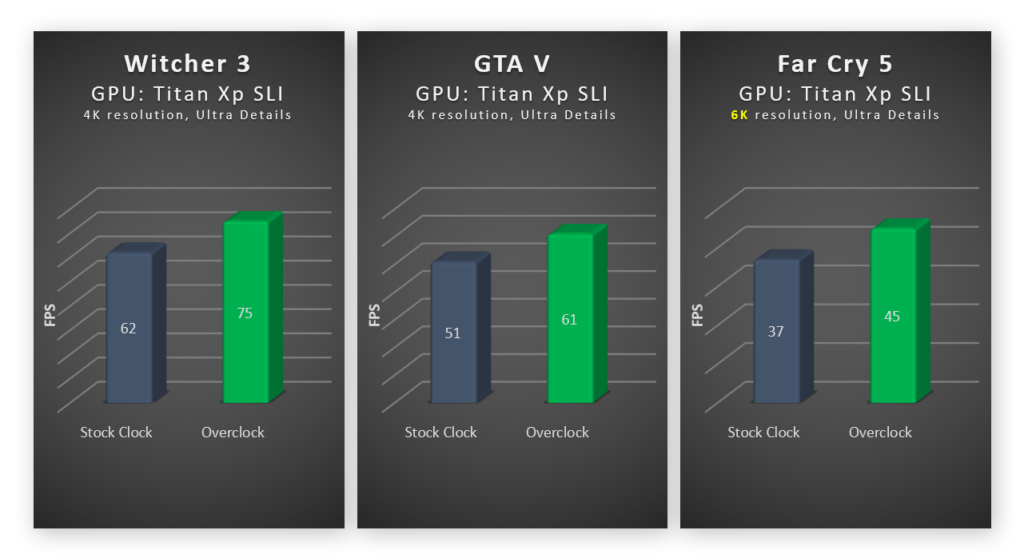
Read: PS5 GPU Equivalent – Compare PS5 GPU Today!
Frequently Ask Questions:
1. Can Increase GPU Clock Speed Damage The GPU?
Yes, overclocking your GPU can cause overheating and may shorten its lifespan if not managed properly with good cooling. Always monitor temperature to avoid damage.
2. How Does Cooling Affect GPU Clock Speed Performance?
Good cooling helps maintain stable GPU clock speeds. If the GPU gets too hot, the clock speed will lower to protect itself, reducing performance. Better cooling improves performance.
3. What Is The Average GPU Clock Speed For Budget GPUs?
Budget GPUs usually have clock speeds around 1200 MHz to 1500 MHz. These speeds are sufficient for basic gaming and light tasks but not ideal for high-performance use.
4. How Can I Monitor My GPU Clock Speed During Gaming?
You can use software like MSI Afterburner or GPU-Z to track your GPU clock speed while gaming. These tools show real-time data about your GPU’s performance.
5. Does Memory Clock Speed Matter As Much As Core Clock Speed?
Both memory and core clock speeds are important. The core clock impacts processing speed, while memory speed affects data transfer. Both affect gaming and other intensive tasks.
6. What Happens If My GPU Clock Speed Is Too Low?
A low clock speed means your GPU processes tasks slowly, which can cause lag in games and slower performance in applications, especially during heavy graphics workloads.
7. Are Factory-Overclocked GPUs Better Than Standard Ones?
Factory-overclocked GPUs are slightly faster than standard ones. They come pre-tuned for better performance but may require more power and cooling to maintain stable speeds.
8. How Does GPU Clock Speed Vary Between NVIDIA And AMD GPUs?
GPU clock speeds vary between NVIDIA and AMD based on the model and generation. Generally, both brands offer similar clock speeds, but their architecture and performance differ.
9. Is There A Big Difference Between 1500 MHz And 2000 MHz GPU Clock Speeds?
A 500 MHz difference can improve performance, but the impact depends on the GPU model and tasks. Higher clock speeds give better performance, especially in demanding tasks.
10. What Is The Safest Way To Overclock GPU Clock Speed For Beginners?
Start by increasing the clock speed in small steps, like 10-20 MHz. Test stability after each change and keep temperatures in check using monitoring tools to avoid overheating.
Conclusion:
In conclusion, understanding GPU clock speed is important for better gaming and performance. A good clock speed, usually between 1500–2000 MHz, ensures smooth visuals and faster tasks. Whether adjusting speeds or choosing a GPU, balance performance with proper cooling to avoid overheating. Follow safe practices to get the best results for your system.
Related Posts:
Red Light On GPU When Pc Is Off – Resolve Your Issue Now!
GPU Only Works In Second Slot – Boost Performance Now!
Runtimeerror: No GPU Found. A GPU Is Needed For Quantization. – Fix GPU Error Now!
Is Beamng CPU Or GPU Intensive – Complete Guide 2024!


